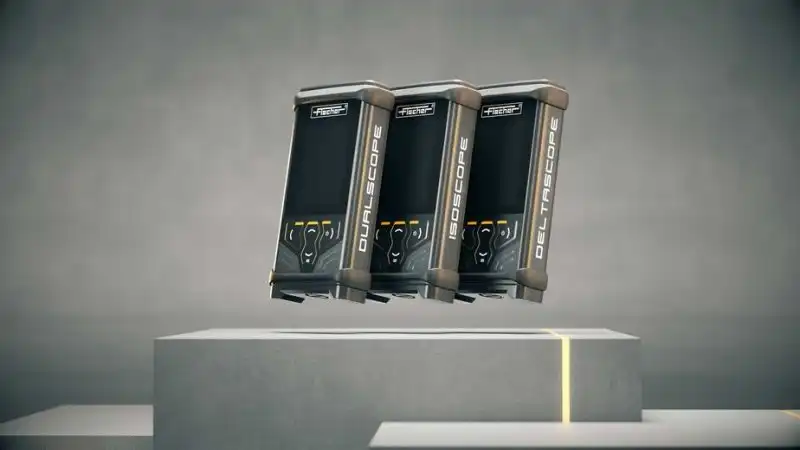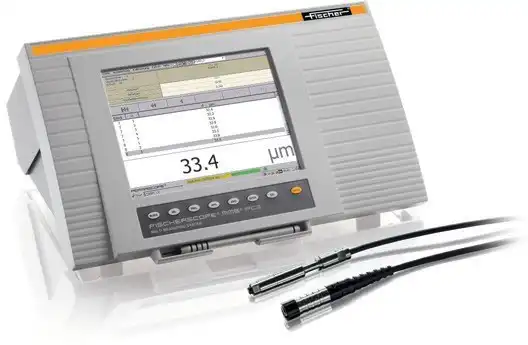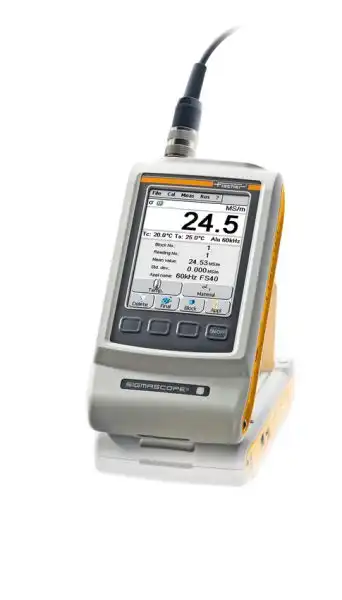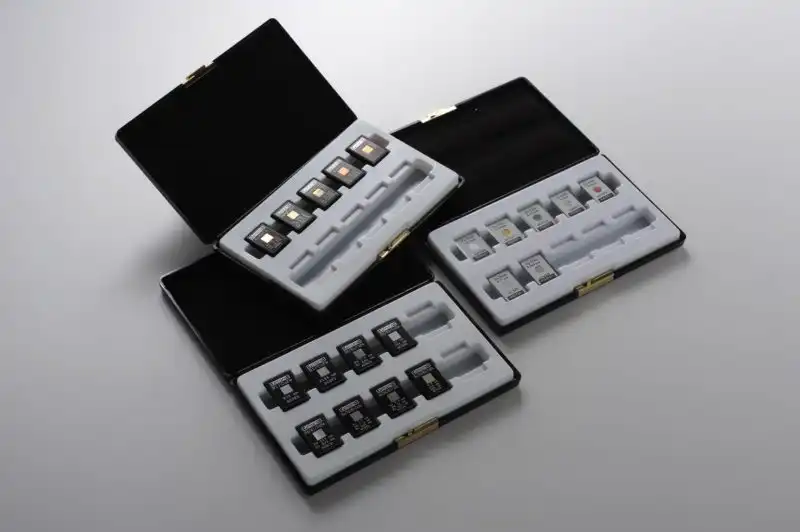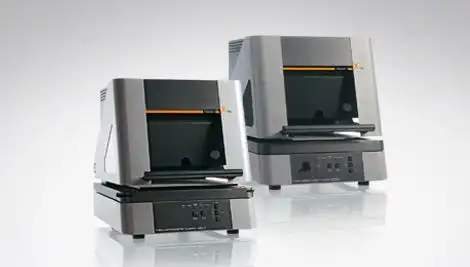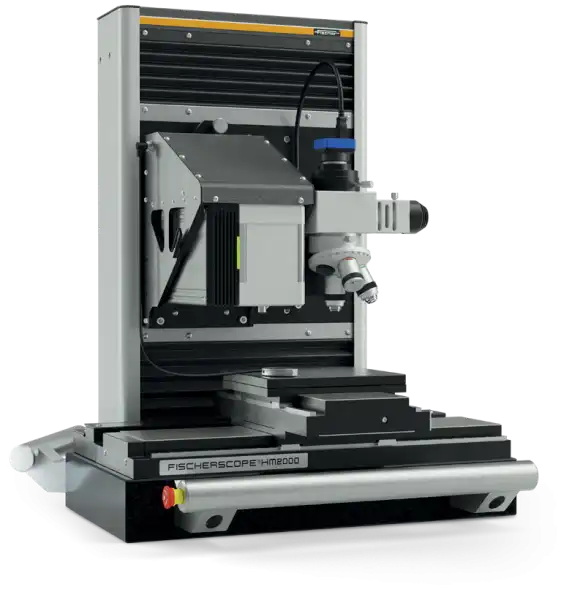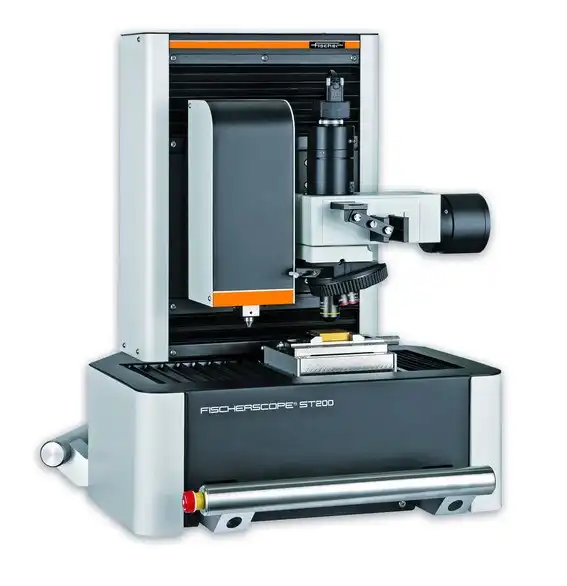Challenges in the aerospace industry and how Helmut Fischer addresses them
The aerospace industry is always looking for new technologies to improve aircraft quality, but it can be hard to find the right suppliers. Helmut Fischer is a global partner for aerospace companies and provides high-quality technologies to measure coating thickness and material composition.
Our equipment meets strict quality standards and provides calibration standards to make sure everything is accurate.
Our high-precision technologies provide accurate measurements for research and development in the aerospace industry.
If it’s not accurate, it’s not Helmut Fischer.
Helmut Fischer is a global partner of major aerospace companies and their suppliers.
We know the technology challenges within the sector and align our technologies to match them.
Quality standards in the aerospace industry need to be very strict.
Helmut Fischer knows this and offers calibration standards with several levels of international certification.
- ISO 17025 / AS/EN 9100
- ISO 17025 / AS/EN9110
- ISO 17025 / AS/EN9120
- ISO 17025 / AS9003
Applications of Helmut Fischer measuring technologies in the aerospace industry
With our measuring technologies you can determine the thickness of electrodeposited coatings of (among others):
- Cadmium (Cd)
- Zinc-Nickel (ZnNi)
- Chromium (Cr)
- Copper (Cu)
- Nickel-Phosphorus (NiP)
Our range of measuring products for the aerospace industry
From measuring probes to integrated software and X-ray fluorescence technology, Helmut Fischer offers a full range of high-precision products for the aerospace sector and its suppliers.
DMP® SERIES
The DMP Series of layer thickness gauges and our high-precision probes allow for non-destructive and highly accurate measurements of paint coatings and lacquers. Whether it is for quality control in a manufacturing process, random sample inspection or complete batches, these portable, easy-to-use instruments will meet your needs. With more than 70 different types of probes, even the most challenging jobs, such as measuring on rough surfaces, in holes and tubes, on concave or convex surfaces and many other challenges, can be overcome with one of our unique probes.
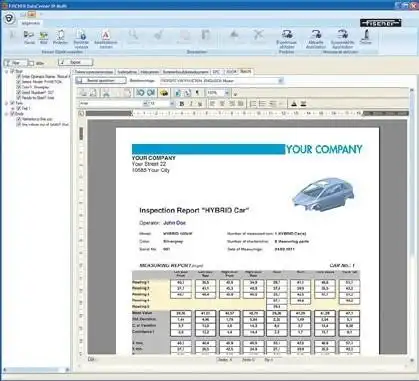
MAIN SPECIAL PROBES FOR FMP® SERIES
FISCHERSCOPE® MMS® PC2
With its modern design, the MMS® PC2 can be easily used in your laboratory or on the production line to connect up to 8 different probe models among the more than 70 available, ready and calibrated for simultaneous use.
The Automation version of the MMS® PC2 already has the interface technology to be connected on the production line and controlled by a robot, with its results being automatically reported in an integrated way in your management system for quick decision-making for quality control.
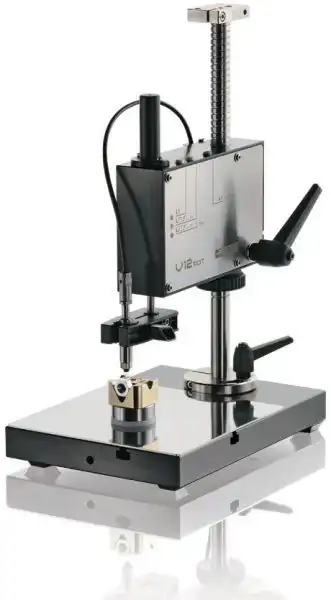
MEASURING STAND FOR SECURING PROBES
For accurate measuring on small parts such as wires, pressed pieces, screws, or parts with complex geometries, it is essential to use the V12 stand for securing the probe in the correct position at the desired point of measurement, thereby preventing any interference from positioning or handling by the operator. If quality control is done by different operators, such as in shifts, the accuracy and repeatability of the measurements taken with the V12 stand can be easily verified when compared to manual measurements by different operators using the same probe.
SIGMASCOPE® SMP350
The SIGMASCOPE® SMP350 uses electrical conductivity to measure the properties of aluminium, copper, brass, and other non-ferrous materials, according to DIN EN 2004-1 and ASTM E 1004. With the SIGMAS-COPE® SMP350 we can correlate the hardness and resistance of materials subjected to heat treatment, as well as evidence of material fatigue. This type of evaluation can be carried out without damaging the sample, even when covered with non-conductive paints or coatings of up to 500μm thick.
The probes used are suitable for different measuring frequencies, ranging from 15kHz to 2MHz for a measuring range of 0.5 – 65 MS/m or 1 – 112% IACS. For automatic temperature compensation, an external sensor can be connected to the equipment.
CERTIFIED CALIBRATION STANDARD
For reliable measurements it is necessary to use calibration standards that meet the requirements of the quality management system.
FISCHER offers a wide range of certified standards according to the procedure accredited by DAkkS/ISO 17025.
The portfolio includes more than 300 calibration standards and covers a large number of applications for different materials, be they layer thickness, element composition or analysis of materials.
X-RAY FLUORESCENCE
Tailor-made for layer analysis or element composition, FISCHERSCOPE X-Rays can be used on a wide range of different electrodeposited materials, measuring the layer thickness on parts with different geometries. Because of its excellent accuracy and repeatability, it is easy to control its process via X-rays using calibrated and traceable methods in accordance with the most demanding standards in the aerospace industry.
For field inspections, where portability is normally required, the fully portable FISCHERSCOPE XAN® 500 can perform measurements of layer thickness and element composition in a few seconds.
X-RAY FLUORESCENCE – SOLUTION ANALYSIS (GALVANIC BATHS)
Companies that use a galvanic process need to monitor and control the formulation of their baths very closely. Controlling the composition of the bath can determine the quality of the layer of electrodeposited material applied. For example, metal coatings of ZnNi, SnPb, Cd, AuAgCu, Ni, among others, can be monitored both in their composition in the bath and in the thickness of the layer applied onto the part.
Using a measuring cell, the galvanic bath can be analysed and any metals in the solution identified immediately by analysing all of the elements simultaneously in just a few seconds, eliminating the need for sample preparation and/or use of reagents.
NANOHARDNESS
SCRATCH TESTER
Adhesion and cohesion of coatings on the substrate are other important properties to be controlled. The Automatic Scratch Tester system characterizes the adhesion force of the coatings on the substrate in an extremely precise way. It is also possible to replace rudimentary testing of adhesion, such as the pull-off and cross-cut test, where a force is applied manually without any control. With the Scratch Tester you can easily check the adhesion and cohesive resistance of layers with a thickness of ≥1μm by applying controlled forces on an mN scale and succeed in obtaining the critical forces according to the force applied. The response from the equipment will be the exact classification of the Critical Forces needed for the surface to start suffering damage, or even when it is completely removed, allowing such coatings to be scaled and applied exactly within the required specifications. This type of equipment is ideal for use in product development, but also for quality assurance or raw material control.
With an automated system for moving the measuring table, it can carry out a large quantity of measurements daily.
Contact us now for more information
If you are interested in our technologies or have questions on which products would best suit your needs in the aerospace industry – give us a call.
If you’d prefer to leave your details, please use the form below and we’ll get in touch as soon as we can.

